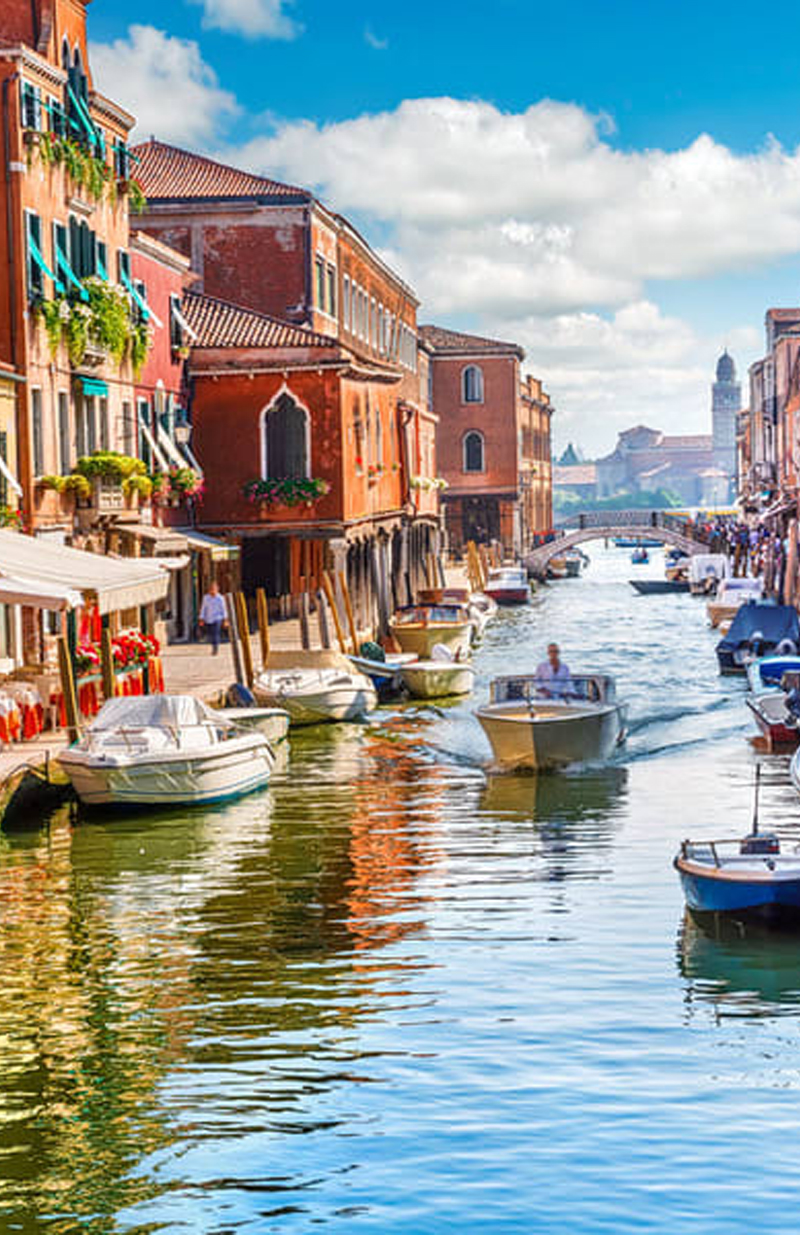History
Italy has a rich and storied history that dates back to ancient civilizations. The Italian Peninsula was home to the Roman Empire, one of the most powerful civilizations in history, whose contributions to law, government, and architecture continue to influence the modern world. After the fall of the Roman Empire, Italy was divided into various states and city-states, such as Venice, Florence, and Milan, which thrived as centers of commerce, art, and culture during the Middle Ages and the Renaissance. The unification of Italy, known as the Risorgimento, occurred in the 19th century, culminating in the formation of a unified nation in 1861. During the 20th century, Italy experienced significant social, political, and economic change, including the Fascist regime under Benito Mussolini during the interwar years. Following World War II, Italy transitioned into a democratic republic and became a founding member of the European Union.
Italy’s history is a tapestry of ancient empires, medieval city-states, the Renaissance, and modern European developments. The Roman Empire and Renaissance movements have left a lasting legacy on the arts, sciences, and governance of the world.
The unification in the 19th century and subsequent political changes have shaped modern Italy into a dynamic nation with strong European ties and global influence.
Best-Selling Italy Tour
Italy Twin City
£313.73 £229Good to Know
Country
Visa Requirements
Language Spoken
Currency Used
Area (km2)
Geography
Italy is located in Southern Europe on the Mediterranean Sea and consists of the Italian Peninsula, the islands of Sicily and Sardinia, and smaller surrounding islands. Italy’s diverse geography includes mountainous regions like the Alps in the north, rolling hills in Tuscany, and coastal plains in the southern regions. The nation is divided into 20 administrative regions, with major cities like Rome, Florence, Venice, and Milan showcasing its urban and historical diversity. Italy’s climate varies from Mediterranean in the coastal areas to alpine in the mountainous north, with hot, dry summers and mild, wet winters in the majority of the country.
The Alps dominate Italy’s northern borders, while the central and southern parts of the country feature fertile plains, coastal beauty, and historical landmarks. Italy is also home to iconic islands like Sicily and Sardinia, each offering unique natural landscapes and cultural traditions.
Italy’s varied climate and geography contribute to its diverse experiences, from snow-capped mountains to sun-drenched beaches and historic Mediterranean towns.
Culture
Italy is a global leader in culture, history, and art, boasting an unparalleled heritage. As the birthplace of the Renaissance, Italy has given the world incredible artistic achievements from artists like Leonardo da Vinci, Michelangelo, and Raphael. Italy’s historical monuments, such as the Colosseum, the Leaning Tower of Pisa, and the Roman Forum, highlight its rich architectural and cultural legacy. Additionally, Italy is celebrated for its contributions to literature, fashion, and music, as seen in opera and iconic designers like Gucci and Prada. Italian cuisine is another cornerstone of its culture, with pasta, pizza, wine, and regional specialties reflecting a blend of tradition, geography, and flavor. Festivals, such as Venice’s Carnival and Siena’s Palio horse race, celebrate this rich cultural identity.
Italy’s cultural influence is far-reaching, blending arts, history, culinary traditions, and social movements. From ancient Roman ruins to modern European innovation, Italy remains a cultural powerhouse that values its artistic heritage.
Why You Should Visit
Italy is one of the world’s most iconic travel destinations, offering breathtaking landscapes, incredible history, and cultural treasures. With iconic landmarks like the Colosseum in Rome, the canals of Venice, the rolling hills of Tuscany, and the historic ruins of Pompeii, Italy is a journey through time. Indulge in authentic Italian cuisine, explore charming cobblestone streets, and experience vibrant art and architecture. Italy is perfect for history buffs, foodies, art lovers, and nature enthusiasts alike.



